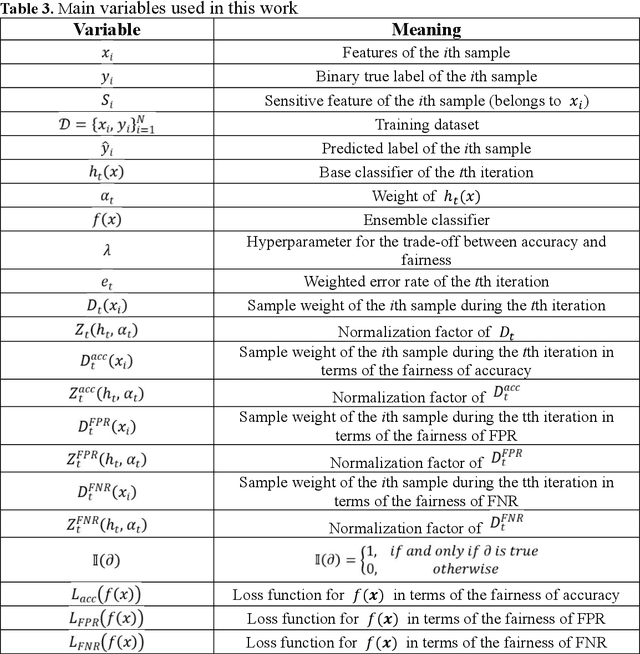Adaptive Boosting with Fairness-aware Reweighting Technique for Fair Classification
Paper and Code
Jan 06, 2024


Machine learning methods based on AdaBoost have been widely applied to various classification problems across many mission-critical applications including healthcare, law and finance. However, there is a growing concern about the unfairness and discrimination of data-driven classification models, which is inevitable for classical algorithms including AdaBoost. In order to achieve fair classification, a novel fair AdaBoost (FAB) approach is proposed that is an interpretable fairness-improving variant of AdaBoost. We mainly investigate binary classification problems and focus on the fairness of three different indicators (i.e., accuracy, false positive rate and false negative rate). By utilizing a fairness-aware reweighting technique for base classifiers, the proposed FAB approach can achieve fair classification while maintaining the advantage of AdaBoost with negligible sacrifice of predictive performance. In addition, a hyperparameter is introduced in FAB to show preferences for the fairness-accuracy trade-off. An upper bound for the target loss function that quantifies error rate and unfairness is theoretically derived for FAB, which provides a strict theoretical support for the fairness-improving methods designed for AdaBoost. The effectiveness of the proposed method is demonstrated on three real-world datasets (i.e., Adult, COMPAS and HSLS) with respect to the three fairness indicators. The results are accordant with theoretic analyses, and show that (i) FAB significantly improves classification fairness at a small cost of accuracy compared with AdaBoost; and (ii) FAB outperforms state-of-the-art fair classification methods including equalized odds method, exponentiated gradient method, and disparate mistreatment method in terms of the fairness-accuracy trade-off.
 Add to Chrome
Add to Chrome Add to Firefox
Add to Firefox Add to Edge
Add to Edge